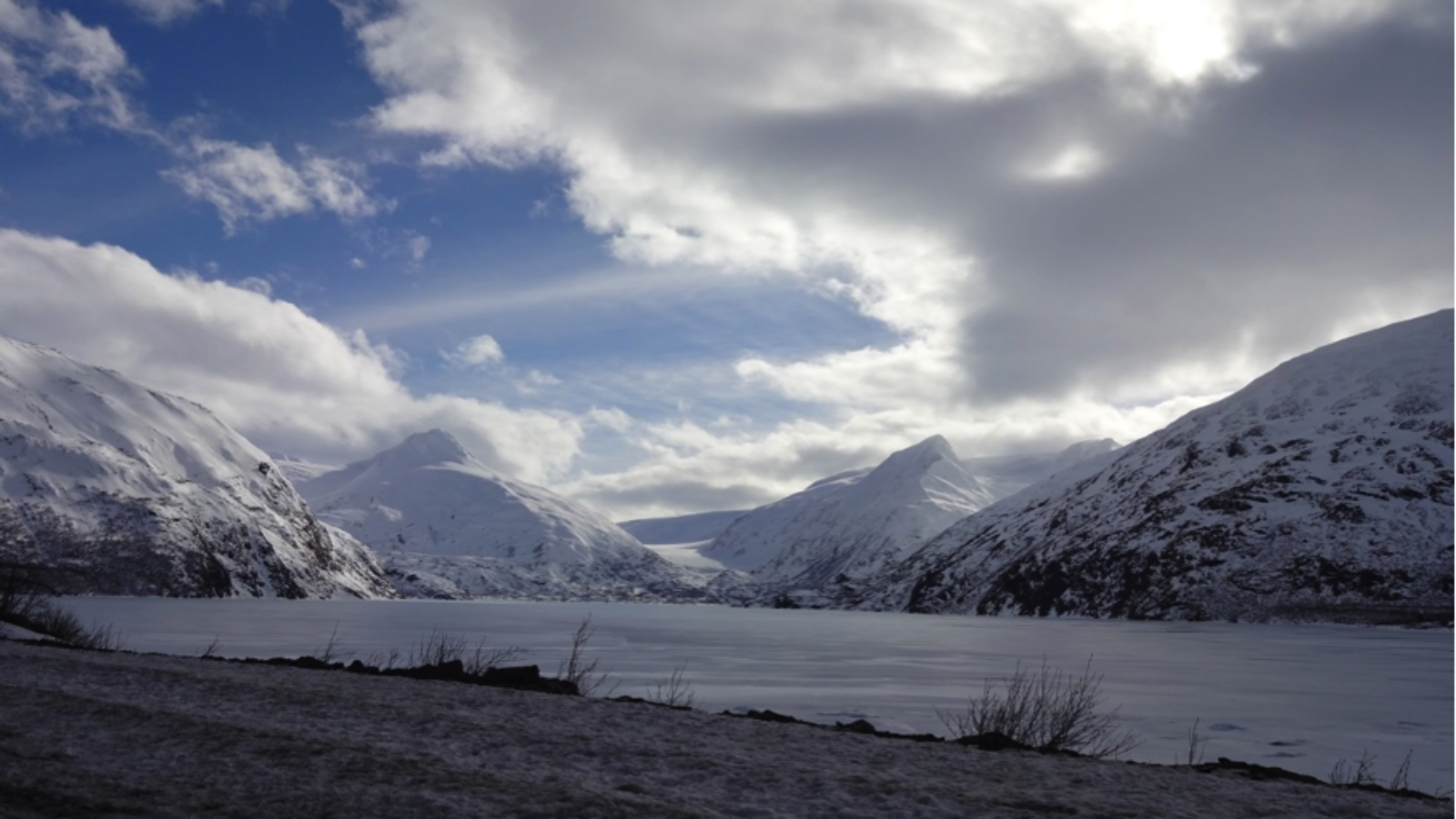By Dorothea Wehrmann
“Warming Up to Arctic Prospects”
“Race is on as Ice Melt Reveals Arctic Treasures”
As articles in The New York Times and in The Washington Post exemplify, the Arctic has made national, if not global, headlines—and these articles increasingly rely on powerful and evocative imagery to reach readers. However, mainstream media is not the only discipline focusing on Arctic issues. Since the turn of the 21st century, more than 50 recognized journal articles and monographs have been published in English on the subject. The various international conferences that have formed around the region further emphasize how the Arctic has become a “hot” global issue.
In 2014 alone, the Arctic Institute, an independent think tank working on Arctic policy issues, outlined 26 conferences exclusively dealing with the Arctic, many of which focused on the potential of future shipping routes and resource development. This number, of course, does not include the many conferences at which only a small portion of talks and panels addressed Arctic issues—for example, at the International Studies Association (ISA) Annual Convention in Toronto last year, or at the 2014 ASANOR/NACS Conference in Alta, Norway.
What is particularly striking is that the Arctic as a topic of interest now attracts the attention of researchers across the globe. Arctic conferences are no longer held exclusively in Arctic nations, but also in non-littoral states such as the U.K. and Germany. This growing interest in the Arctic offers a unique opportunity to develop new and more sophisticated perspectives on various aspects concerning the region. For example, with respect to critical undertakings such as Arctic oil and gas development, and assessments of environmental risks and economic opportunities are much more nuanced if different positions are considered. From indigenous and non-indigenous people living in the Arctic, to others living in regions outside the Arctic, and the multilevel-perspectives contributed by researchers representing a wide range of disciplines, the experience of others contribute greatly to increasing public knowledge of Arctic development.

An influx of new perspectives also helps to balance out the sensationalist representation of Arctic issues by politicians and the media, such as the “use it or loose it” rhetoric applied by the Canadian Prime Minister Stephen Harper. Harper made this simplified statement to emphasize government’s desire for investments in development and military defense in the Canadian North. From his point of view, this was needed to strengthen Canadian sovereignty in the Arctic.
Journalists, on the other hand, use catchy headlines to attract readers, such as “The Colder War: U.S., Russia and Others are Vying of Santa´s Back Yard.” The phrase ‘colder war’ is a word play associated with frigid temperatures, but also serves as an analogy for the Cold War, during which the Arctic was depicted as a military theater. At the same time, the reference to Santa Claus´ home base (the North Pole) is a means of appealing to a wider audience.
However, there is a danger that academics may cloud the imagination and subsequent judgment of the populace. For example, academic debate focused on the nexus of natural resources might reinforce flawed reasoning, which is sometimes evident in political rhetoric or mainstream media accounts of the region as exemplified above. Various academic publications on the Arctic apply classical geopolitical thinking when their authors argue that estimated oil and gas reserves will likely cause future conflicts in the region, while often neglecting counter-arguments, such as the fact that most estimated resource reserves are located within recognized national borders.
As such academic analysis is subjective, it is therefore of utmost importance to remember that all of us are a product of our surroundings and circumstances. In turn, this is reflected in our attitudes. Neither journalists, nor politicians, nor scholars are detached observers—or as the Washington-based scholar and author, Gearóid Ó Tuathail said, all of us can “know the world only through the conceptual schemas provided by our culture and languages.”

Indeed, at the conferences dealing with Arctic issues that I attended last year, Ó Tuathail´s view was confirmed on several accounts. I noticed how academics from across the globe shared an enthusiasm for the Arctic, yet also differed on a variety of issues—be it environmental, economic, security, or culture. Controversy amongst academics often arose during discussions concerning the topic of security. Conference attendees debated issues such as whether the newly accessible Arctic will or will not lead to regional military conflict, and whether or not the Arctic Council as an intergovernmental forum for Arctic governments and peoples is capable of dealing with future challenges. Notably, the personal backgrounds and different professions of the attendees often colored their viewpoints.
However, certain voices were observably absent from these Arctic conferences. Participants originated primarily from North America or Europe, while others such as members of Arctic indigenous groups remained a minority—even if these conferences took place in Arctic locations, such as in Alta.. Due to the costs associated with travel and attendance fees, those lacking financial resources are still often excluded from participating in international conferences. This leads to the omission of critical knowledge. The inclusion of diverse ideas is crucial to reduce the potential for bias, which is why future conferences on the Arctic should aim to include an array of voices across regions and spectrums. This growing interest in Arctic issues shared by people living in the Arctic, polar researchers, and by the wide variety of stakeholders is certainly promising of vivid and fruitful debate in the years to come.
*****
*****
Dorothea Wehrmann is a Ph.D. student and Research Fellow at the Bielefeld Graduate School in History and Sociology and at the Institute for World Society Studies in the Department of Political Science at Bielefeld University, Germany.
[Photos courtesy of Dorothea Wehrmann]
